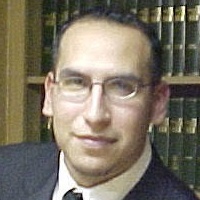Cibolo Juvenile Law Lawyer, Texas
Sponsored Law Firm
-
 x
x

Click For More Info:
-
Stephanie Alvarado Attorney at Law
100 N Central Expy Suite 805 Richardson, TX 75080» view mapCriminal Defense Law Fighting Against Unjust Prosecution
Attorney Stephanie Alvarado is there for her clients when help is needed right away. Helping people charged with crimes in Texas for over 20 years.
800-988-5471
Law Offices of Jesus R Lopez
✓ VERIFIEDCriminal, Divorce & Family Law, Wills & Probate, Adoption, Juvenile Law
Originally from Del Rio, Texas, Jesus is fluent in both Spanish and English. With an undergraduate degree in Economics and International Business from... (more)
Timothy Maurice Torres
Juvenile Law, Personal Injury, Family Law, Mass Torts, Criminal
Status: In Good Standing Licensed: 15 Years
Holly Gail Gonzalez
Insurance, Business, Juvenile Law, Criminal
Status: In Good Standing Licensed: 12 Years
Rose Maginot Latham
Juvenile Law, Other, Family Law, Criminal
Status: In Good Standing Licensed: 16 Years
Clayten Howard Hearrell
Family Law, Juvenile Law, Criminal
Status: In Good Standing Licensed: 17 Years
Charles A. Stephens
Juvenile Law, Wills, Family Law, Consumer Bankruptcy
Status: In Good Standing Licensed: 40 Years
Deborah Linnartz Wigington
Juvenile Law, International Other, State Appellate Practice, Family Law
Status: In Good Standing
Erin Marie Wroblewski Barry
Juvenile Law, Other, Criminal, Administrative Law
Status: In Good Standing Licensed: 11 Years
Timothy D. Walker
Juvenile Law, Wills, Family Law, Criminal
Status: In Good Standing Licensed: 33 Years
 Stephanie Alvarado Richardson, TX
Stephanie Alvarado Richardson, TX Practice AreasExpertise
Practice AreasExpertise

